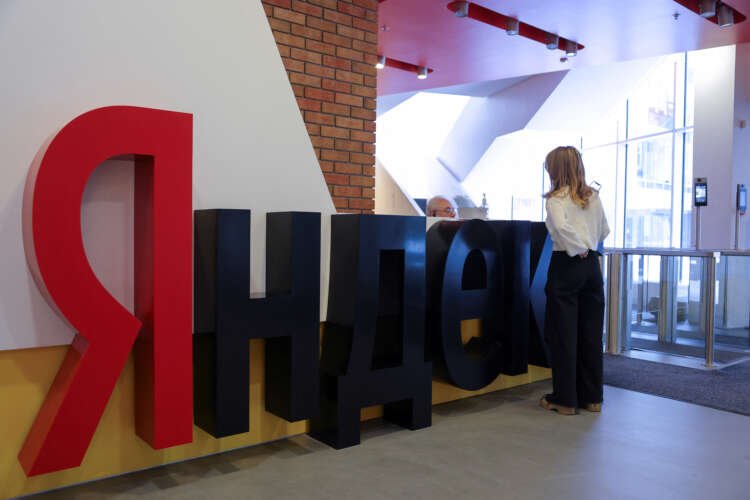Explainer-Why the $5.2 billion sale of Russia’s Yandex is significant


By Alexander Marrow
LONDON (Reuters) – A $5.2 billion cash and share deal to sell the key Russian assets of technology group Yandex, often labelled as “Russia’s Google”, to a consortium of Russian investors was announced on Monday after months of negotiations.
Here’s why the deal is significant.
Moscow has long sought to gain more influence over Yandex, set up in the dotcom boom in the late 1990s, as it became a key player in online services such as search and advertising, email, ride-hailing, e-commerce, cloud and streaming.
The sale to a group of Russian investors would bring Yandex under the control of only Russian entities for the first time.
Yandex, which went public on Nasdaq in 2011 through its Dutch-registered holding company Yandex NV, has a free-float of almost 88%, with many Western investors among its shareholders.
“This is exactly what we wanted to achieve a few years ago, when Yandex was under threat of being taken over by Western IT giants,” said Anton Gorelkin, deputy head of the Russian parliament’s committee on information policy. “Yandex is more than a company, it is an asset of the entire Russian society.
“Yandex has become a fully-fledged Russian IT company.”
Under pressure to comply with Kremlin demands over content, Yandex sold its news aggregator and other online resources to state-controlled rival VK in late 2022, seeking to de-politicize its business. It then began work on the corporate restructuring.
Since Russia invaded Ukraine in February 2022, scores of foreign-owned businesses have exited the market, with many abandoning assets on unfavourable terms.
The Kremlin demands a discount of at least 50% on deals involving foreign owners, meaning that although Yandex largely serves the Russian market, it is still subject to those terms.
The $5.2 billion deal is a significantly lower price than Yandex’s ultimate value – its market capitalisation briefly approached $30 billion in 2021 – but would be one of the largest deals since the war began.
Many companies have sold assets for a nominal fee, while Russian President Vladimir Putin has ordered the temporary seizure of others, such as assets belonging to Danone and Carlsberg.
Yandex managers stressed in a letter to employees that the company would remain independent.
The proposed new owners, Consortium.First, would be made up of Yandex senior management, a fund controlled by oil major Lukoil and three other companies owned by businessmen Alexander Chachava, Pavel Prass and Alexander Ryazanov.
It was not immediately clear what influence the new Russian ownership may wield.
Lukoil did not immediately respond to a request for comment.
Reuters sought comment from companies linked to Chachava and Prass. Ryazanov could not immediately be reached for comment.
Yandex NV said the deal’s cash consideration – up to 230 billion roubles ($2.52 billion) – would be paid in Chinese yuan outside of Russia.
A person familiar with the matter said it was the only currency that suited all parties.
Most Russian banks were disconnected from the SWIFT global payments system soon after Russia’s invasion of Ukraine and transactions in dollars and euros have become increasingly difficult or impossible to execute.
The share of China’s yuan on the Russian market has soared.
($1 = 91.3875 roubles)
(Reporting by Alexander Marrow; Editing by Alexander Smith)
Yandex is a Russian multinational corporation specializing in Internet-related products and services, often referred to as 'Russia's Google' due to its dominance in search engines and online services.
Corporate restructuring involves reorganizing a company's structure, operations, or finances to improve efficiency, adapt to market changes, or address financial challenges.
Market capitalization is the total market value of a company's outstanding shares, calculated by multiplying the share price by the total number of shares.
A consortium is an association of two or more individuals or companies formed to undertake a specific project or business activity, often pooling resources and expertise.
A cash and share deal is a type of transaction where the buyer pays for an acquisition using a combination of cash and shares in the acquiring company.
Explore more articles in the Top Stories category











